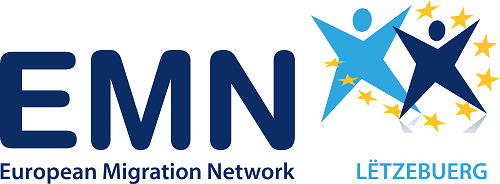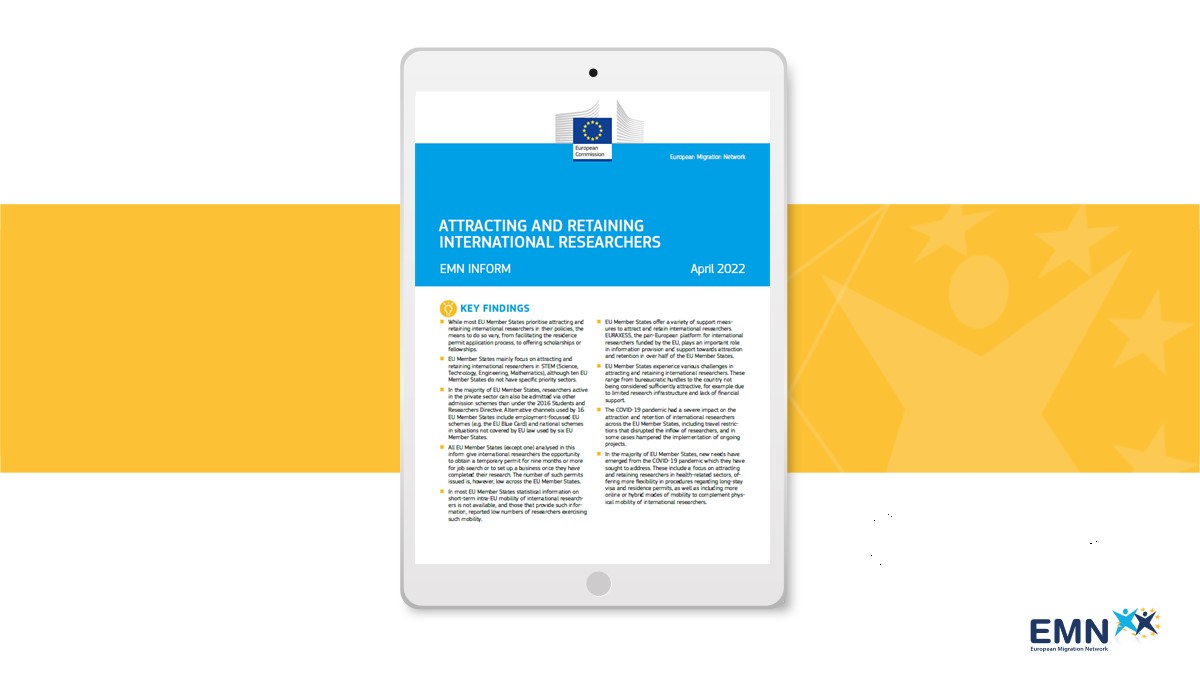How do Member States attract and retain international researchers? The latest inform from the European Migration Network (EMN) provides an overview of the means adopted by Member States to enhance attractiveness for international researchers, as well as main challenges and best practices to admit and retain them.
Third-country researchers from non-EU countries can provide important expertise to European universities and other research institutions, promoting knowledge circulation across the EU. The Students and Researchers Directive seeks to improve and harmonise legal standards for welcoming and retaining international students and researchers, as well as making the EU a more attractive destination for them. This inform draws on the contributions of 22 Member States and aims to explores challenges and good practices adopted at EU and national level.
While most EU Member States prioritise attracting and retaining international researchers in their policies, the means to do so vary. Member States adopt promotional and informational activities to enhance their attractiveness for international researchers, including leaflets, info days, websites, media campaigns, or missions abroad. The inform also reports bilateral and multilateral cooperation agreements between EU Member States and third countries, aiming to provide funding for joint research projects or the creation of networks of academics.
In relation to the admission of international researchers, the inform highlights that several Member States refer to the Students and Researchers Directive, with some also implementing other national or EU employment-focused schemes that admit international researchers as highly qualified workers. In situations not covered by EU law, additional specific research-focussed national schemes are applied.
At national level, several measures are in place to facilitate the retention of international researchers. These include providing support to obtain a residence permit and registering residence with local authorities; support on arrival; induction and orientation. The inform highlights that EU Member States give international researchers the opportunity to obtain a temporary permit for nine months or more for job search or to set up a business once they have completed their research.
Member States face various challenges in attracting and retaining international researchers. These range from bureaucratic hurdles to the country not being considered sufficiently attractive, for example due to limited research infrastructure and lack of financial support.
The COVID-19 pandemic had a severe impact across the EU. For instance, travel restrictions have disrupted the inflow of researchers, and in some cases prevented the implementation of ongoing projects. In order to address these issues, new measures were introduced, such as more online or hybrid modes of mobility to complement the limited physical mobility of international researchers.
French translation of the Inform was kindly provided by EMN France.

